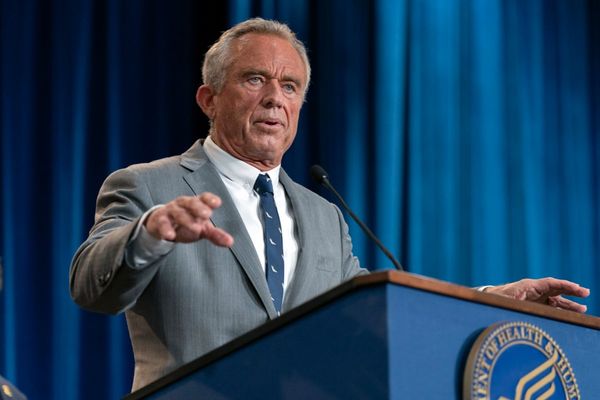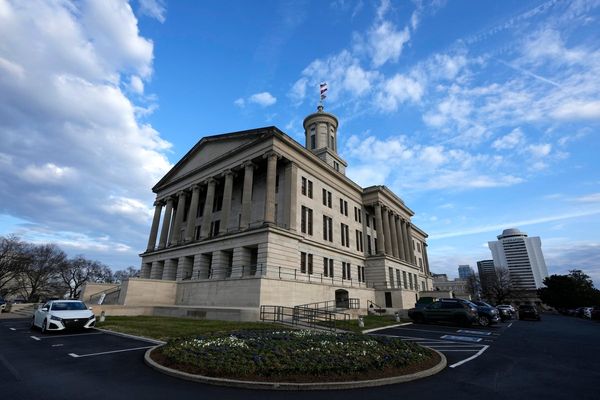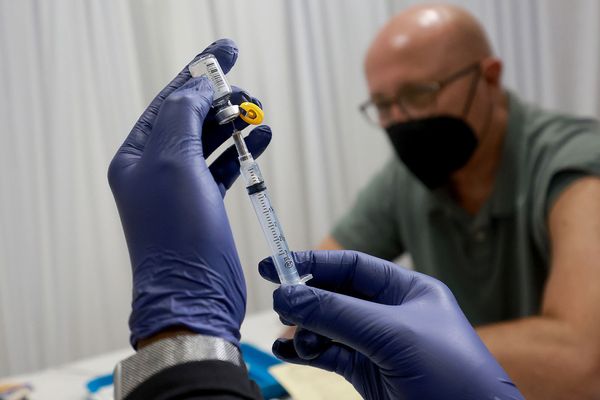President Joe Biden and Health and Human Services Secretary Xavier Becerra this week became prime examples of the nation’s newest COVID-19 wave, and although it’s unclear what variant they’re infected with, infectious disease experts say the latest dominant strains of COVID-19 are no more dangerous than previous iterations.
Biden, 81, is currently dealing with mild upper respiratory symptoms and is taking the COVID-19 antiviral Paxlovid, according to White House physician Kevin O’Connor. This is the third time Biden has had COVID-19 while in the White House.
Becerra, 66, meanwhile, announced his positive test through a spokesperson on Tuesday. Both continue to work, albeit remotely.
The new omicron variant, KP.3, has taken hold in recent weeks as heat waves across the United States have caused Americans to congregate indoors, according to Amesh Adalja, an infectious disease doctor at Johns Hopkins University. But this increase in infections has not translated into an increase in COVID-19-related hospitalizations or deaths, as the latest strain of the virus is no more virulent than previous iterations.
The KP.3 and KP.2 variants, both sublineages of omicron, make up a total of 61.3 percent of new cases in the two-week period ending July 6, according to the most recent data from the Centers for Disease Control and Prevention. The KP.3 variant consists of 36.9 percent of cases, and KP. 2 consists of 24.4 percent of cases.
The number of COVID-19 cases resulting from the KP.3 variant is rising rapidly and has quickly overtaken KP.2 and JN.1 variants as the most dominant COVID-19 lineages in recent months. In mid-April, KP.3 made up 2 percent of all cases.
In the past two weeks, COVID-19 test positivity has increased by 8.6 percent and emergency room visits have increased by 23.5 percent in the last week, according to the CDC. But despite this increase in sickness, deaths have only increased by less than 1 percent.
Not much makes KP.3 different from past iterations of the virus.
“We are still in the omicron era,” said Paul Offit, who is the director of the Vaccine Education Center at Children’s Hospital of Pennsylvania and a member of the Food and Drug Administration’s vaccine advisory committee.
The COVID-19 virus and its variants will continue to evolve in terms of the receptor-binding domain, which is the part of the spike protein that binds to cells, Offit said. But it’s still the same base virus. So for that reason, people who have been previously infected with COVID-19 or vaccinated in the past four to six months will likely only have a very mild case of the virus.
For those who experience more severe symptoms, physicians have more tools to deal with COVID-19 now, such as antivirals and monoclonal antibodies. But high-risk individuals should still continue to take more precautions than your average American, experts say.
“This is all a very different scenario than when Trump got COVID and we didn’t have any of these tools,” Adalja said. “Although when an 81-year-old tests positive for COVID, we still have to take it very seriously.”
The post Summer COVID surge isn’t cause for alarm, experts say appeared first on Roll Call.










